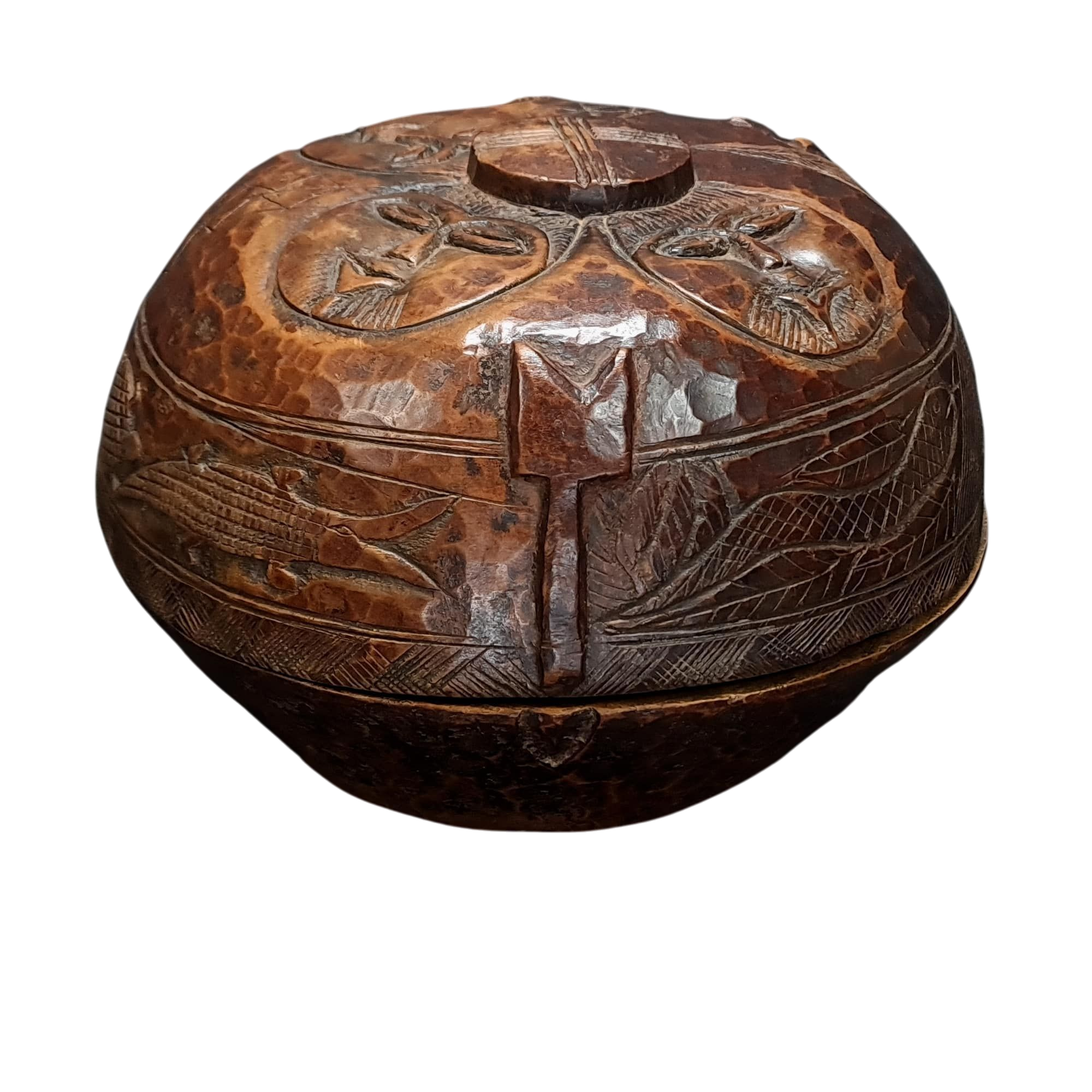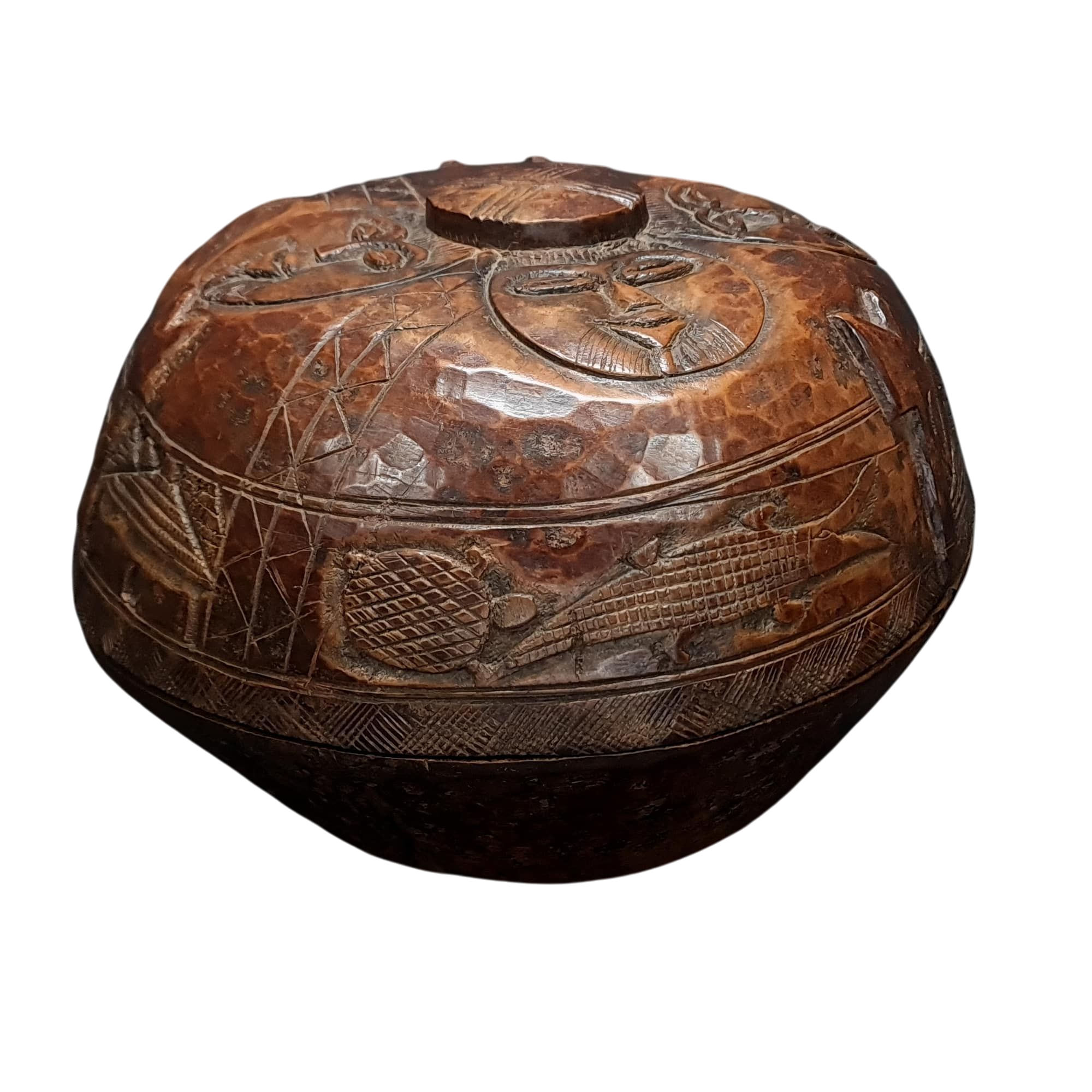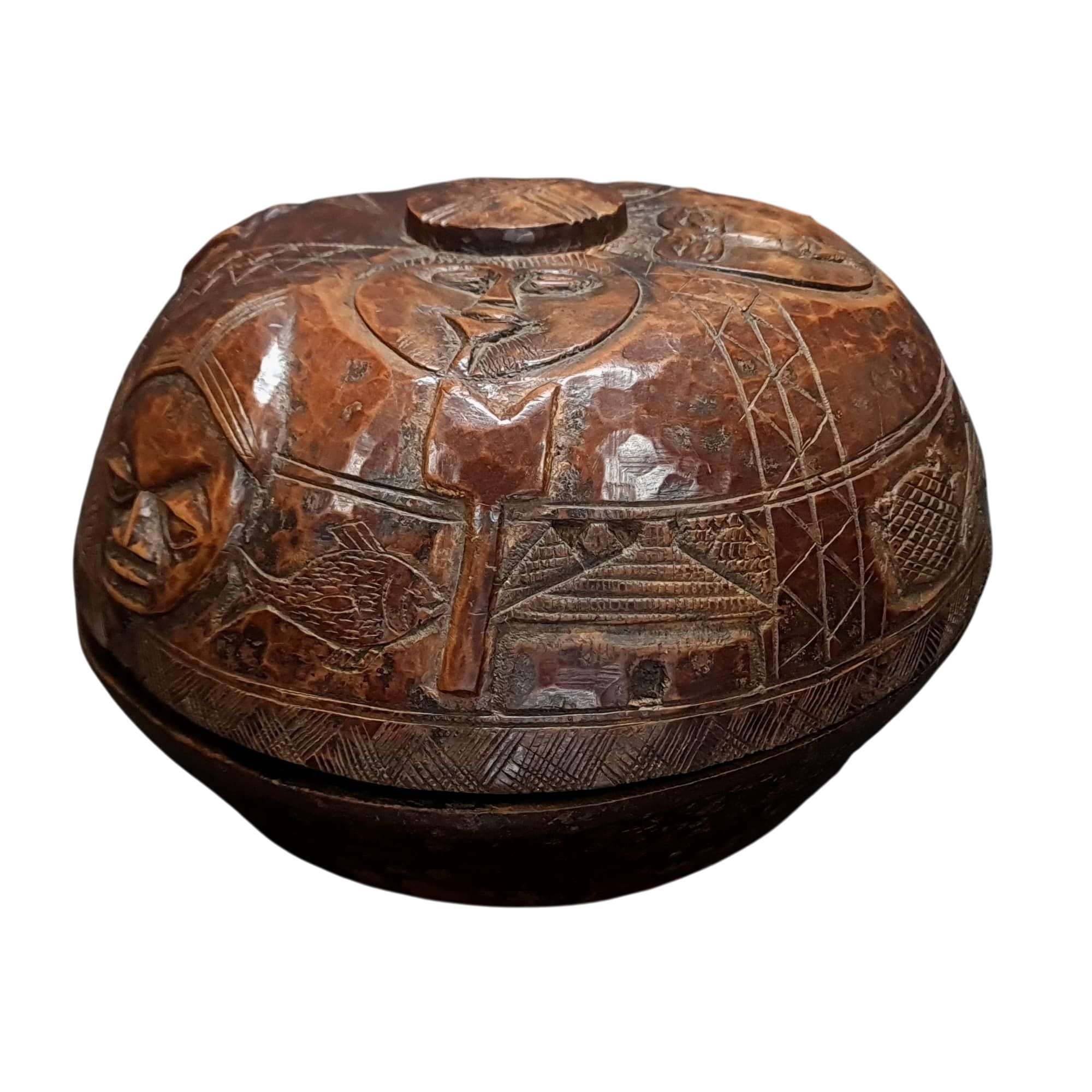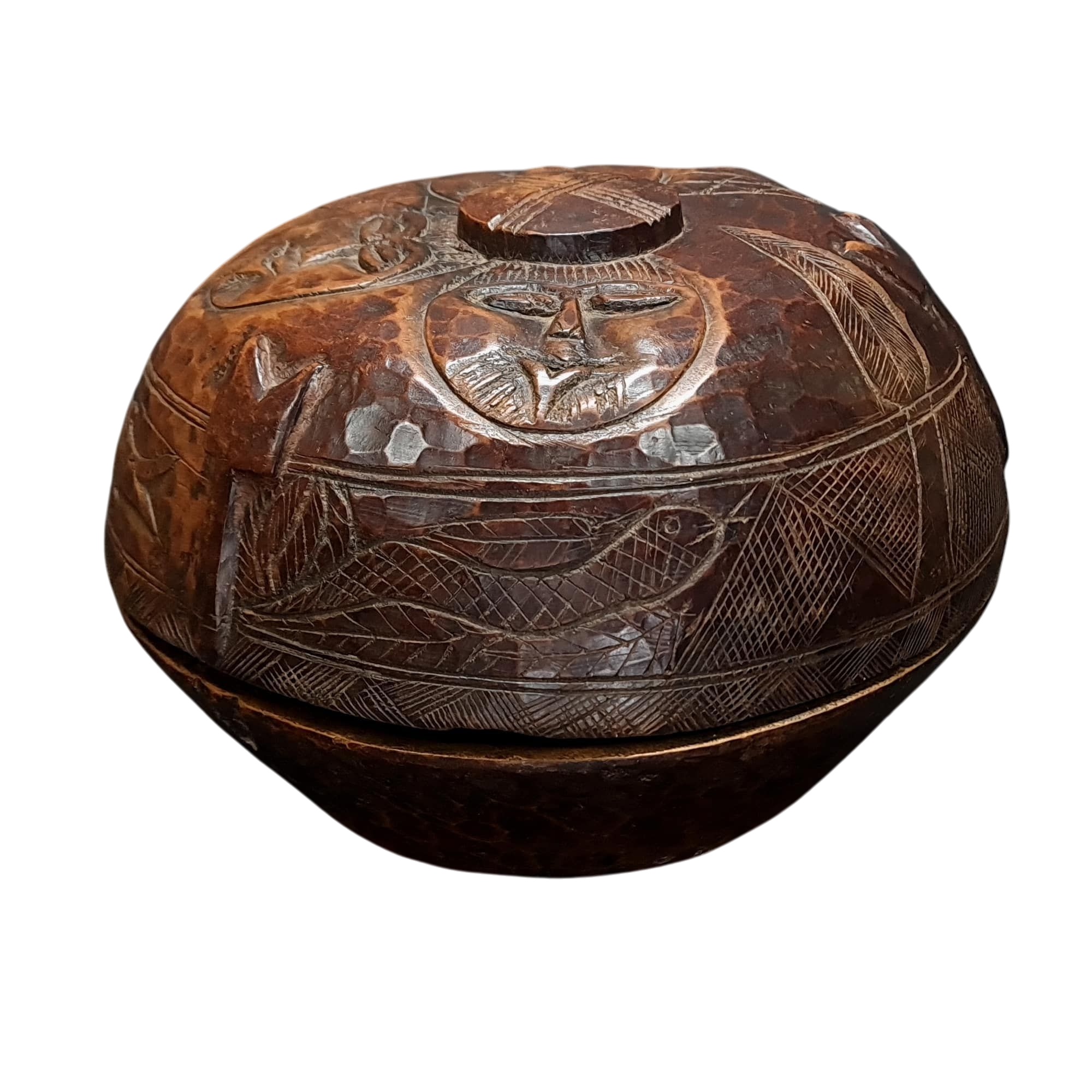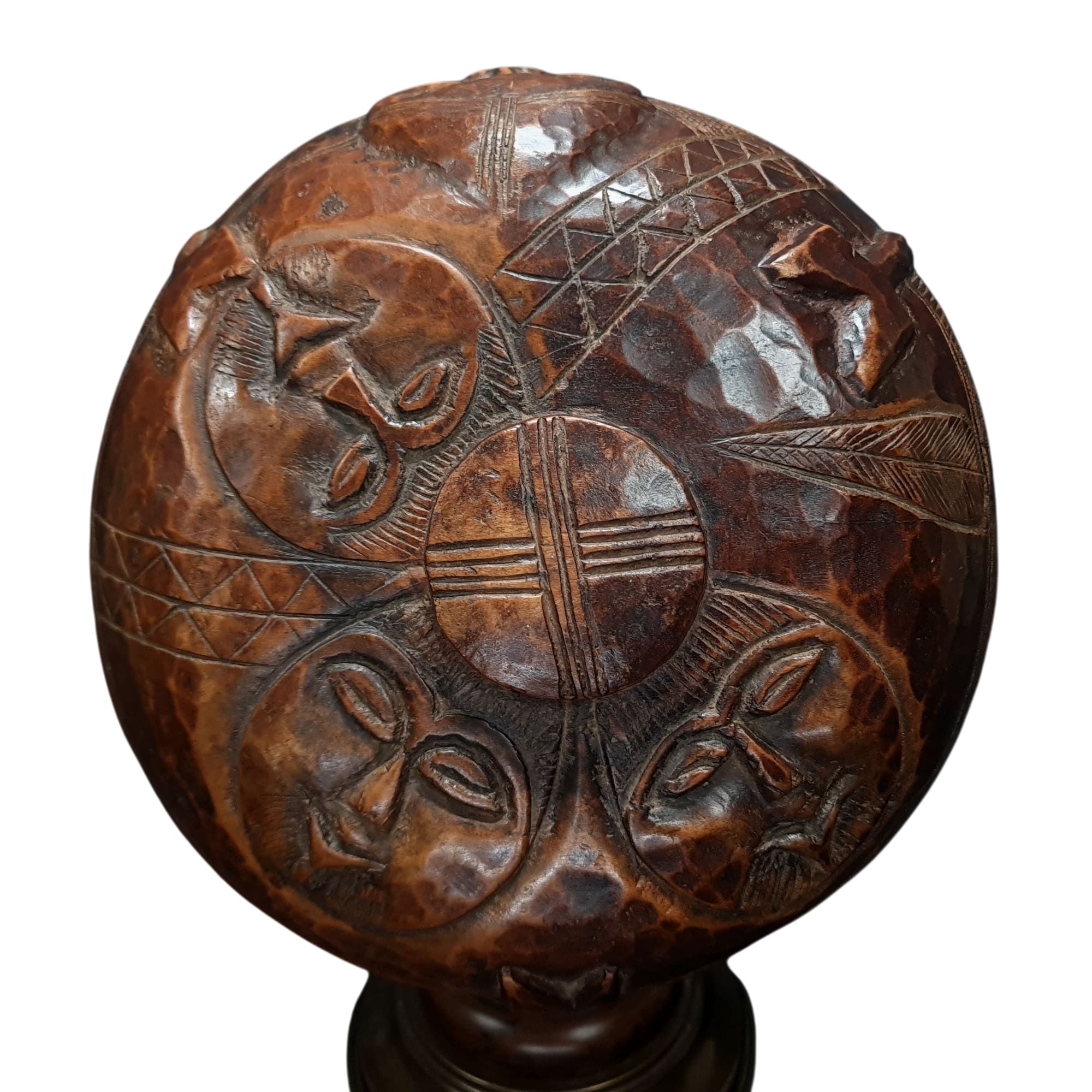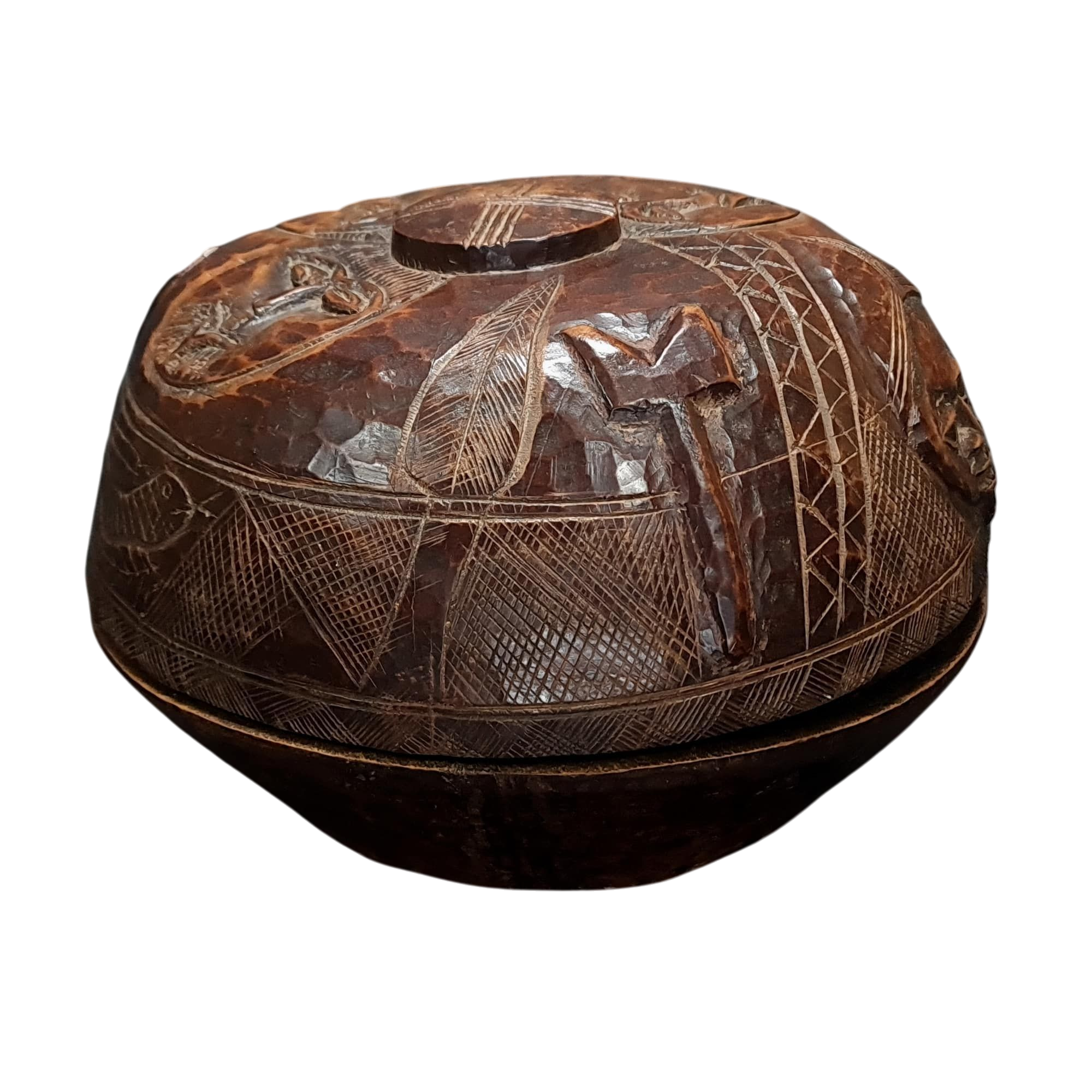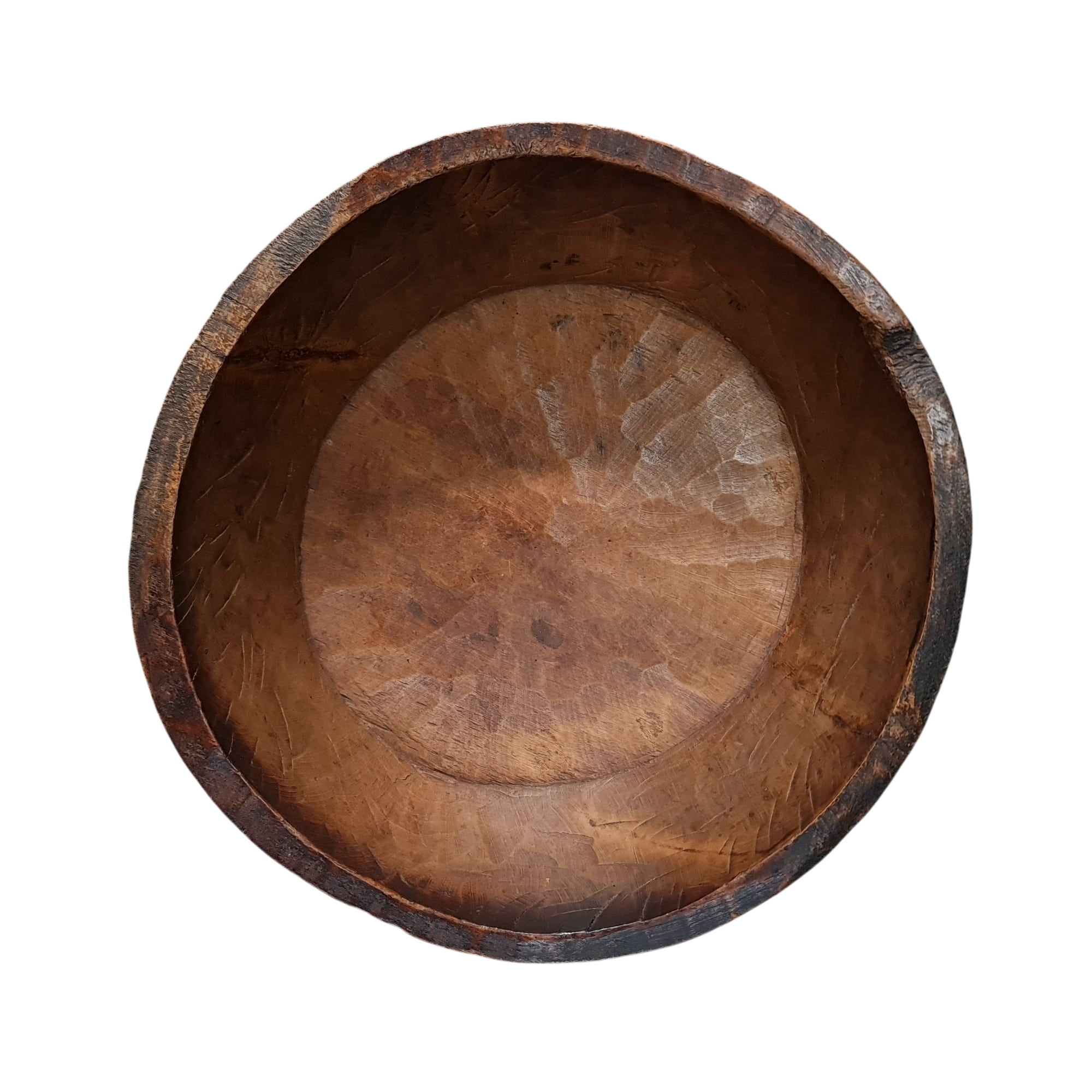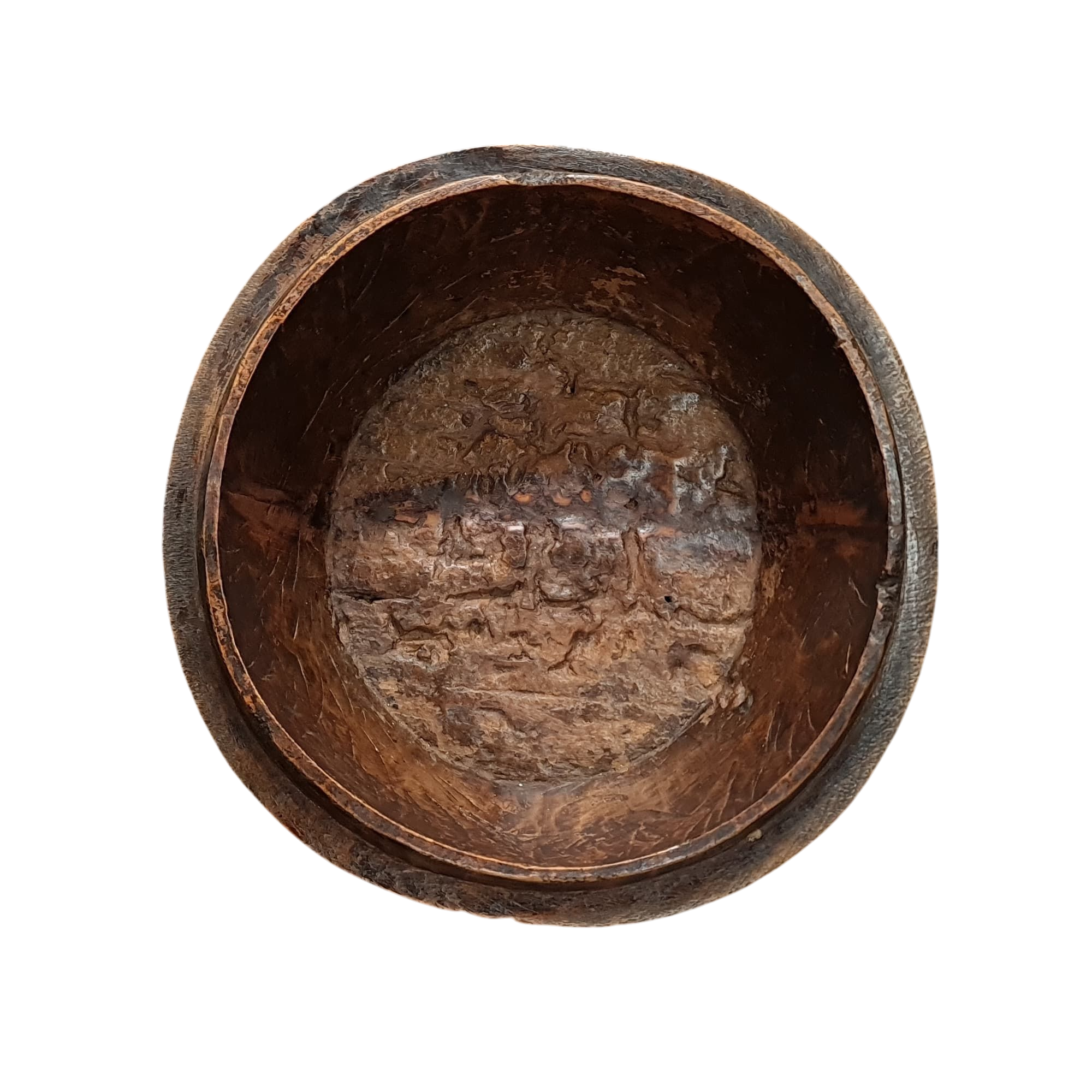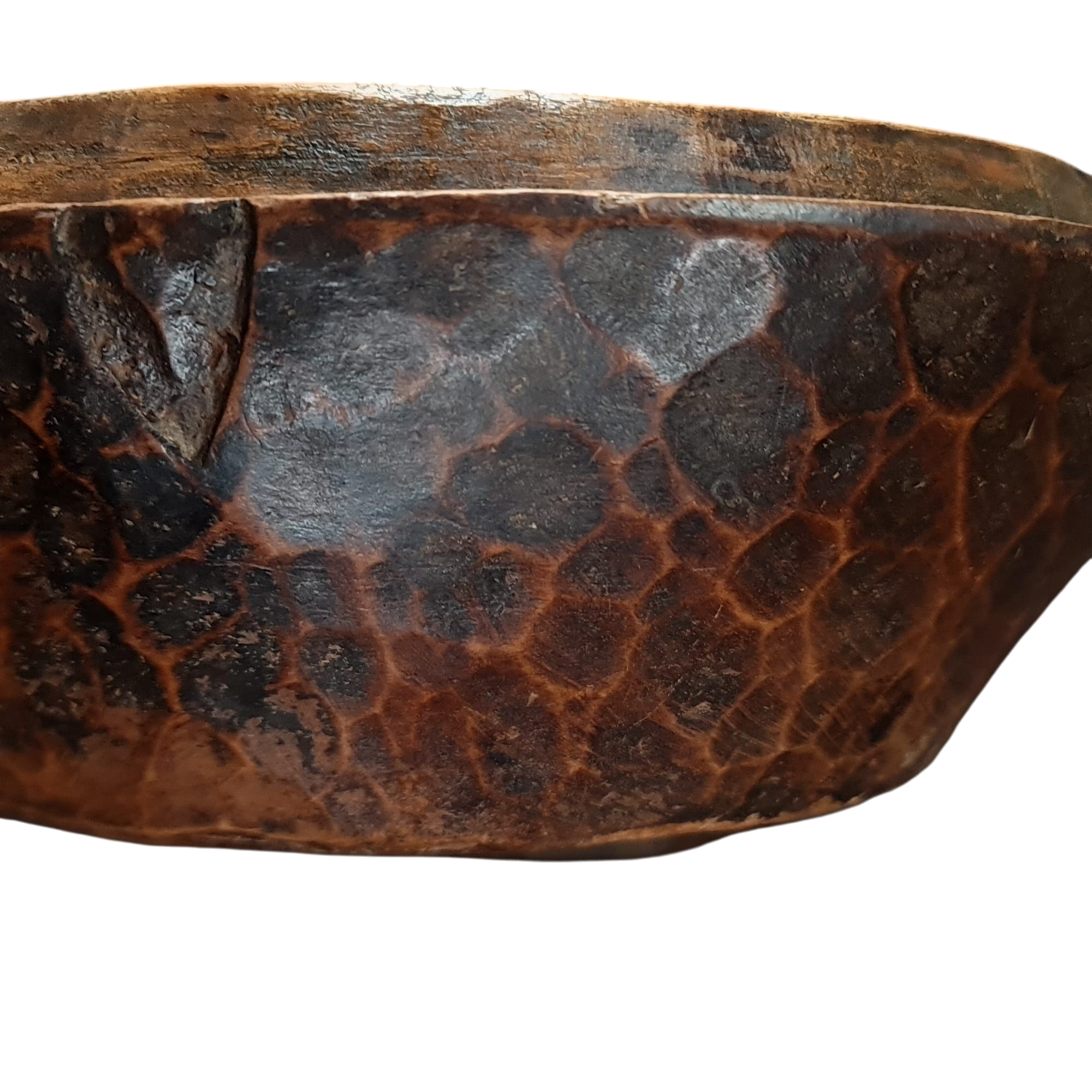Dimensions and Weight
Weight: 3.119 kg
Height: 23.5 cm
Width: 39 cm
Introduction
Ancient Yoruba wooden pots from Nigeria are objects of art and culture of significant historical and aesthetic importance. The Yoruba people are one of the largest ethnic groups in Nigeria, known for their rich and diverse artistic culture. Wooden pots among the Yoruba in Nigeria are fascinating artifacts, much less common compared to earthenware pots, yet they hold great cultural and historical significance.
Materials and Techniques
Wood: The pots are crafted from various types of wood, chosen for their durability and ease of carving.
Carving: Yoruba artisans use carving tools to create intricate patterns and complex shapes on wooden pots. Wood carving is a highly developed skill among the Yoruba.
Styles and Forms
Diverse Shapes: Like earthenware pots, wooden pots can vary in shapes and sizes, ranging from small cups to large containers.
Ornamentation: Wooden pots are often adorned with carved motifs such as geometric patterns, human or animal figures, and mythological scenes. These decorations can carry profound symbolic meanings.
Functions
Rituals and Ceremonies: Wooden pots are frequently used in ritual and ceremonial contexts. They may hold sacred substances, offerings, or ritual objects.
Utility Containers: Although less common, some wooden pots may also serve domestic functions such as storing food or liquids.
Symbolism and Meaning
Spiritual Significance: The motifs and carvings on wooden pots may represent deities, spirits, or symbols of protection and prosperity. They are often used in rituals to invoke divine favor or to communicate with ancestors.
Social and Cultural Role: Wooden pots can reflect the social status and wealth of their owners. They may also be passed down through generations as family heirlooms.
Notable Examples
Royal Court Pots: In Yoruba royal courts, wooden pots can be highly ornate and used in important ceremonies such as coronations, royal weddings, and funerary rites.
Divinity-Linked Pots: Some wooden pots are specifically dedicated to particular deities and used in shrines for specific worship practices.
Conservation and Study
Material Fragility: Wood being an organic material, wooden pots are more prone to deterioration over time compared to earthenware. This makes their conservation and study more challenging.
Museums and Private Collections: A few examples of Yoruba wooden pots can be found in museums and private collections, where they are preserved and studied for their historical and cultural value.
Conclusion
In summary, Yoruba wooden pots from Nigeria are remarkable art objects that testify to the rich artisanal tradition and deep spiritual depth of Yoruba culture. They play a significant role in rituals and ceremonies while reflecting the aesthetic and social values of this African society.
Provenance
Private collection ZAMBELLI/BRUGNACCHI, assembled between 1990 and 2023.
Transferred to the Spirit Land of Africa Gallery in 2023.
Contact us : +33 562 632 665

